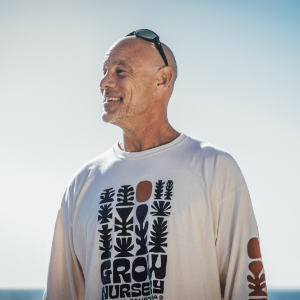Testicular pain
What causes testicular pain?
Most men will experience testicular pain at some point, often resulting from a knock to the genital area. This pain typically heals on its own with medical intervention; however, testicular pain which is exceptionally severe, appears with obvious cause, does not go away, or impacts your day-to-day life may warrant medical attention.
Sandhurst Urology offers diagnosis, management, and medical intervention for testicular pain from our clinic in Bendigo. To book an appointment, please ask your GP for a referral.

Testicular pain & symptoms
Testicular pain can be dull, sharp, intense, mild, or any combination of these. The exact nature of the pain and any accompanying symptoms will vary depending on the underlying cause. Notify your doctor if you notice any of the following symptoms:
- Nausea
- Fever
- Swelling
- Bruising
- Difficulty urinating
- Unusual discharge from the penis
- Redness and/or unusual warmth in the scrotum
- Feeling an abnormal lump in one or both testicles
- Blood in the urine
- Pain during sex and/or when ejaculating
- Heaviness in the scrotum
- Discomfort or pain in the lower abdomen
As with any condition, note that your own experience with testicular pain is individual. For individualized diagnosis and medical advice, ask for a referral to Sandhurst Urology.
How testicular pain is diagnosed
Your doctor will begin diagnosing testicular pain with a physical examination. They will examine the testicles while you are standing up, and lying down, asking about specific situations or positions which improve or worsen your pain. They will also ask questions about your sexual history, the severity of the pain, how long you have had it for, and whether it impacts your sexual function or ability to urinate.
If your doctor suspects testicular torsion, they may recommend immediate surgery without any further investigative tests. This is because testicular torsion is a medical emergency, and a delay of minutes or hours can significantly impact whether the testicle can be saved. If they do not believe testicular torsion is the cause, our doctor may request one or more of the following tests:
Preventing testicular pain
In addition to specific advice provided by your medical team, the following strategies may reduce your likelihood of developing testicular pain:

Treatments for testicular pain
- Pain relieving medications – over-the-counter medication such as Nurofen or Advil can relieve pain caused by injury, surgery, infection, and some other causes. If these fail to provide relieve, your doctor may prescribe a stronger medication.
- Antibiotics – testicular pain caused by a scrotal infection or a disease such as mumps may be treated with medications designed to kill bacteria. If an STI causes your testicular pain, your recent sexual partners may also need to take antibiotics.
- Wearing a scrotal support – wearing athletic underwear or a medical supporter can help prevent painful movements during healing.
- Resting & elevating the scrotum – When lying down, men may relieve pain by placing a folded towel underneath the scrotum.
- Cold therapy – pain caused by injury may be relieved by applying a cold pack wrapped in a towel to the groin area (do not apply ace directly to the skin). This can be repeated four times daily for around 20 minutes at a time.
Medical interventions for testicular pain
Surgical treatment is rarely needed for managing testicular pain, though it may be warranted in emergencies or in cases where the pain has not resolved itself with other treatments. Interventions for testicular pain offered through Sandhurst Urology’s Bendigo clinic include:
Providing Excellent Urological Care of the Highest Standards
Book a consultation with Sandhurst Urology today